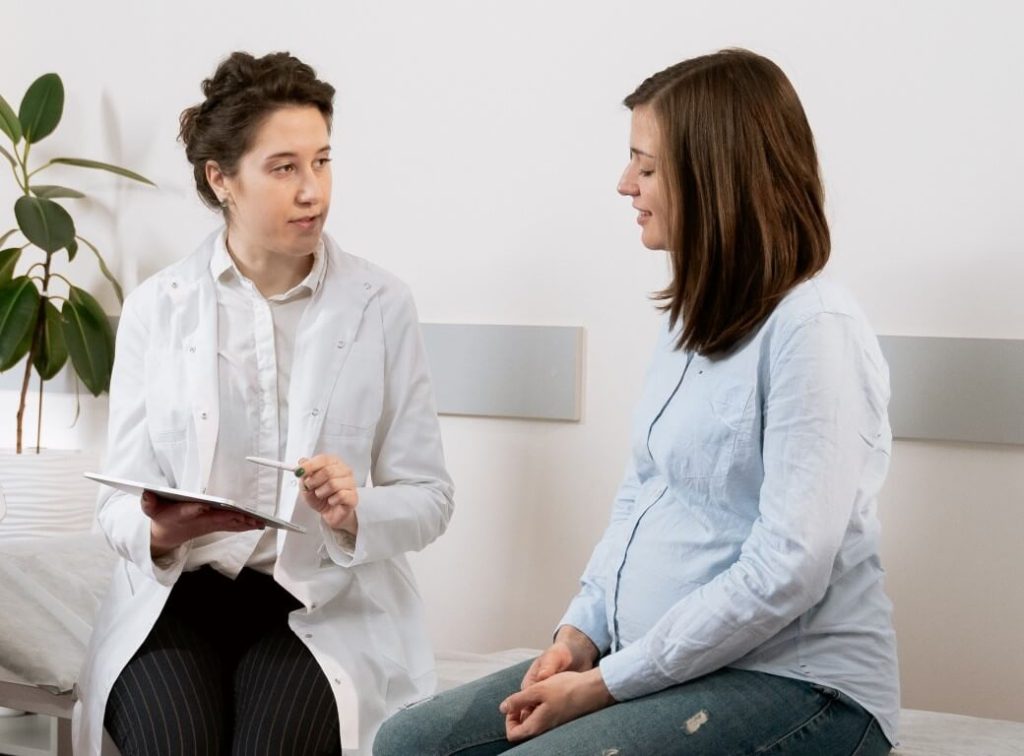A women’s certified specialist or “WCS” is a specialist that demonstrates an extremely advanced level of knowledge in clinical science, foundational science, client management, behavioral science, and practice management within the area of physical therapy for women. This certification got passed by the APTA in the year of 2006 and by 2009, the first certification examination was taken. Currently, there are nearly 800 certified specialists in women’s health in the physical therapy field.

What are the Requirements to Become a Women’s Certified Specialist?
To become a women’s certified specialist, you must be a physical therapist that currently possesses a permanent or unrestricted license to practice. There must be at least one case of a client that you have seen within the past three years that demonstrates an emphasis on practice within the realm of women’s health. Additionally, you must have one of the following:
- You must submit documentation/proof of providing 2,000 direct patient care hours as a physical therapist within the scope of a 10-year period. At least 500 of those hours must have been completed within the last 36 months.
- You must submit documentation that you have completed a post-professional clinical-based residency that is accredited with the APTA within the past decade. If you are currently enrolled in a residency, you must have been granted the candidacy status. It is then you may apply to take the certification examination.
What’s On the Women’s Certified Specialist Examination?
Generally speaking, all of the material on the examination for the women’s certified specialist directly pertains to the information listed in the “Description of Specialty Practice” that covers the information on “Women’s Health Physical Therapy”. There are approximately 200 questions, in total. Graphics may be included in the test. The questions are written in such a way that the taker must be knowledgeable in specific areas – both the content and the practice expectation associated with the content.
The outline summary of the test is as follows:
- Knowledge – 20%
- Patient Care & The Management of Clients – 55%
- Professional Expectations Associated with The Practice – 25%
What Health Conditions Are Covered on the Examination?
Numerous health conditions are covered on the examination. The following is a general estimation breakdown of that which is covered:
- Bowel Dysfunction – 5%
- Sexual Dysfunction – 5%
- Lymphedema – 5%
- Urinary Dysfunction – 15%
- Musculoskeletal Dysfunction – 26%
- Pregnancy & Postpartum – 12%
- Pelvic Floor Issues – 26%
- Other (Such as neurologic and cardiovascular) – 6%
It is important to note that this is the information covered on the examination currently. The health conditions and the percentage in which they are covered on the examination may change in the future.
Prior to taking the examination, you should attempt to find out as much as you are able to in regard to the actual questions and the percentages in which they are covered. Our figures here may or may not accurately reflect the test that you take in the future. While we make every effort to provide current information, please note that it may change as time goes on.
Information on the Certification
The American Board of Physical Therapist Specialties – also referred to as the “ABPTS” – is directly responsible for overseeing and engaging in the facilitation of the certification of women’s certified specialists.
When one has earned this level of certification, it directly indicates that the specific physical therapist has proven that they possess the skill, the knowledge, and the overall expertise that exceeds that of a physical therapist on an entry-level basis and in the area of the health practice of women’s health.
The examination is a highly comprehensive and thorough assessment of all of the areas that are outlined in the “Description of Specialty Practice” in women’s health. If there are any questions associated with this examination for certification, you may contact the American Board of Physical Therapist Specialties by emailing the following: spec-cert@apta.org.
In addition to this, you may visit the website directly that oversees this particular certification to learn more, check on the status of any application that you have submitted, or inquire about the specifics associated with the women’s certified specialist career.
Designation Specification
Once you have received the certification to become a women’s certified specialist, you must ensure that you know how to properly list your name. You must use complete words and not acronyms. Your certification cannot be listed after your name, but below it. For example:
Jane Doe, PT, DPT
Board-Certified Clinician in Women’s Health Physical Therapy
What is the Professional Credential of Physical Therapists?
As a professional physical therapist, you are designated as a “PT”. Then, you will follow that with the highest degree that you have – to date – obtained. In this particular profession, the highest is a Master’s of Physical Therapy (MPT) or it is the Doctorate of Physical Therapy (DPT). You may earn additional certifications throughout the course of your career, such as the women’s certified specialist.
Once the credential is obtained, you will specialize in helping women with various health conditions, diseases, and other issues that are directly related to their health. Your training will allow you to have a deeper level of understanding of the various issues that apply – in an exclusive manner or in a predominant manner – to females. Examples of issues that you may deal with include pregnancy issues, breast cancer recovery, and even those that affect women more than men, like fibromyalgia.
What are Examples of Women’s Health Issues?
Examples of issues that impact the health of women include the following:
- Gynecological and/or Reproductive
- Female Sexual Health
- Breast Health
- Pregnancy Care
- After Childbirth Care
- Infertility
- Preventive Health Care
The care that you will provide for these issues as a women’s certified specialist includes – but are not at all limited to – the following:
- Conditions that occur in the prenatal and postnatal stages
- Post-surgical issues, such as scarring that occurs after surgery for breast cancer
- Rehabilitation of the pelvic floor and/or the symptoms associated with pelvic disorders
- Incontinence
- Perimenopause
- Menopause
- Post-Menopause
- Menstrual Issues
- Any physical issue that results in complications
- Age-related issues, such as the development and treatment of osteoporosis
What are the Educational Requirements to Become a Women’s Certified Specialist?
When obtaining an education to become a women’s certified specialist, you will likely complete courses in the following:
- Anatomy
- Physiology
- Biology
- Chemistry
- Physics
- Health Sciences
- Athletic Training
- Physiology
- Psychology
- Statistics
What Should Be Considered When Choosing a School?
When you look into schools to become a women’s certified specialist, you should consider many factors.
First, start with the admission requirements, costs, and if there are any opportunities for financial aid.
You should evaluate the structure and curriculum of the school as well as the clinical education opportunities.
Then, consider the campus, faculty, and demographics of the students as well as the size of the facility. Finally, consider the licensure and the rates of employment of the students that have completed the program.
Join Us Today
We here at Colorado Physical Therapy Network would like to invite you to join us. We are dedicated to provide support to a wide array of different specialists – including physical therapists. In addition to this, we specialize in increasing cooperation between therapists, doctors, third party payors, patients, and others that are part of a patient’s outcome. You will also gain access to numerous resources that will aid in your career. If you are interested, we encourage you to learn more. You may contact us today at: 303-757-7004


